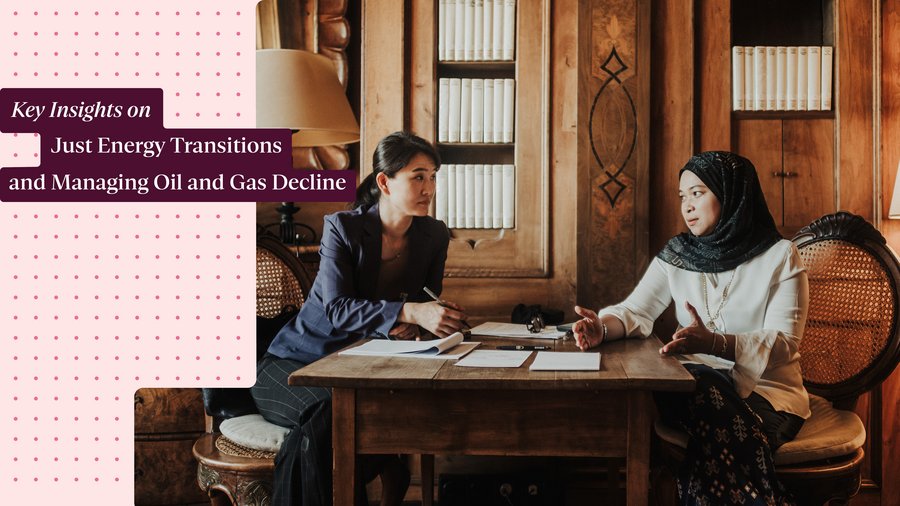6 insights from Salzburg Global Fellows' discussions at the 2025 "Policy Dialogue on Just Energy Transitions: Pathways to Prosperity Post Fossil Fuels"
Most forecasters today, including the International Energy Agency, expect global Oil & Gas (O&G) demand to peak before 2030, even if no new climate policies are introduced. For countries dependent on O&G production and exports, this creates unprecedented pressure to transform their energy systems and economies to prepare for this decline. Despite these challenges, this period of change also offers a springboard for justice-driven and enduring prosperity.
The second edition of the "Policy Dialogue for Just Energy Transitions: Pathways to Prosperity Post Fossil Fuels" took place from June 23 to 27, 2025 in Salzburg, Austria. The dialogue convened policymakers, finance and industry representatives, civil society, and key experts from more than 10 key O&G producer-exporter and consumer-importer countries, as well as representatives from international organizations and leading modelling groups. This was a dedicated space for evidence-based, cross-national discussions on navigating effective demand reduction management strategies that account for just energy transitions and support broader economic diversification.
6 Key Insights:
- Technology is accelerating the peak in global oil and gas demand more than new climate policies. Economies reliant on oil and gas exports must plan for this decline.
- The transition will bring cross-border and distributional impacts as producer countries adapt in a changing market. Just energy transitions create opportunities to build more prosperous and equitable economies.
- New governance models for collaboration between importers and exporters are a key pathway to align interests and advance just, orderly, and equitable transitions.
- Exporters need to diversify their economies and energy systems to reduce dependence on oil and gas. Overcoming barriers to high value industries and reliance on resource extraction can unlock new opportunities in the clean energy economy.
- Fiscal and legal reforms can strengthen revenue use, boost domestic investment, and overcome the key bottleneck of mobilizing finance to advance oil and gas transitions.
- Regionally led economic modelling can provide a strong evidence base to guide effective and practical transition strategies.
During this session, Fellows explored key challenges and opportunities for enabling just energy transitions across diverse national contexts, while also advancing multilateral approaches to managing O&G demand decline. During the dialogue, Fellows established five Working Groups (WGs) to co-develop solutions related to critical aspects of the transition. Over the coming months, the WGs will convene to further develop their work. Learn more about these groups and follow their latest updates here.
Download the Key Findings as a PDF
View the publication on ISSUU:
The "Policy Dialogue on Just Energy Transitions 2.0: Pathways to Prosperity Post Fossil Fuels" was held from June 23 to 27, 2025 at Salzburg Global. It was co-hosted with Climate Strategies in partnership with the Stanley Center for Peace and Security and the Windward Fund.


